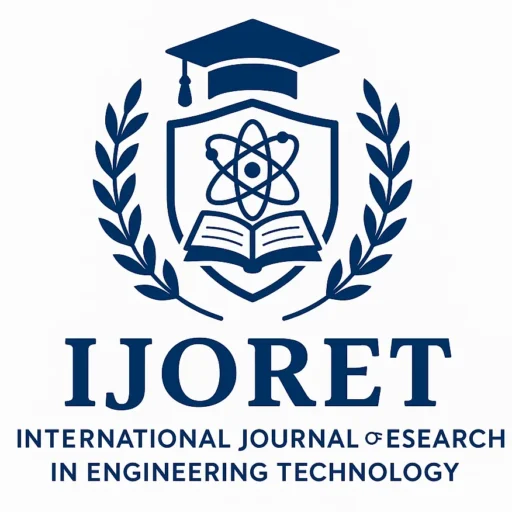IJORET Call for Papers | International Journal of Research in Engineering & Technology

IJORET Call for Papers – International Journal of Research in Engineering & Technology
The IJORET Call for Papers invites high-quality manuscripts that advance theory, methods, and practice across engineering and technology. This page outlines scope, submission requirements, timelines, and the editorial standards that help authors reach a global readership. Begin your journey with clear guidelines, transparent peer review, and persistent linking via DOI for every accepted paper.

About the IJORET Call for Papers
The IJORET Call for Papers seeks original research articles, reviews, technical notes, and short communications that demonstrate methodological rigor, clear contributions, and potential to inspire further work in engineering and technology. We serve academic researchers, industry practitioners, and cross-disciplinary teams who translate innovation into impact. Each manuscript is evaluated for novelty, clarity, reproducibility, and the strength of evidence supporting conclusions. Our editors champion transparent reporting, ethical compliance, and practical relevance so that published work is reliable, reusable, and citable.
Scope of the IJORET Call for Papers
Submissions are welcomed across civil, structural, and geotechnical engineering; mechanical systems, design optimization, and manufacturing; electrical, electronics, and power systems; communications, signal processing, and control; computer engineering, embedded systems, and cybersecurity; robotics, mechatronics, and intelligent systems; energy, sustainability, and environmental engineering; materials science and nanotechnology; transportation and smart infrastructure; biomedical engineering technologies; and AI/ML applications with measurable engineering outcomes. Interdisciplinary work that integrates theory, simulation, prototyping, and field validation is highly encouraged.

What We Expect from Submissions
- Novelty & Significance: Clearly articulate the research gap and why the results matter.
- Methodological Rigor: Provide enough detail for replication; specify datasets, parameters, and tools.
- Evidence-Backed Results: Use robust experiments, validated models, or real-world tests.
- Transparent Limitations: Discuss constraints, threats to validity, and future directions.
- Reusability: Where appropriate, link to code or data to support reproducibility.
- Ethics & Compliance: Ensure approvals and disclose conflicts of interest.
IJORET Call for Papers – Author Checklist
Use this quick checklist to ensure your manuscript is ready for review and aligns with the editorial standards of IJORET.
- Concise, informative title and accurate author affiliations.
- Abstract (150–300 words) covering problem, approach, results, and implications.
- 3–7 keywords that reflect domain, methods, and application areas.
- Introduction with clear research question(s) and motivation.
- Transparent methodology with reproducible steps and parameter choices.
- Results with tables/figures, comparisons, and statistical/engineering justification.
- Discussion interpreting findings, limitations, and future work.
- Ethics statements where applicable; conflicts of interest disclosed.
- Complete references with DOIs where available.
- Proofread for structure, grammar, and figure/table consistency.
How Peer Review Works at IJORET
After editorial screening for scope, originality, and ethics, manuscripts are assigned to qualified reviewers for double-blind evaluation. Reports assess novelty, methodology, clarity, and contribution. Decisions include accept, minor/major revision, or reject, with constructive feedback provided to help authors improve. Acceptance triggers production checks, DOI assignment, and publication to the journal website.
Understand the Review WorkflowIndexing, Visibility & DOI
IJORET prepares accepted articles with rich metadata and clear citation information. Our publishing pipeline supports discoverability and long-term accessibility, helping researchers, practitioners, and students locate, read, and cite your work. Authors retain the ability to share links and track engagement over time.


Ethical Publishing & Research Integrity
IJORET follows established guidelines on authorship, plagiarism, image manipulation, data integrity, and conflict of interest disclosure. Submissions must be original and not under consideration elsewhere. For studies involving human participants, animals, or sensitive data, include the necessary approvals and consent statements. Our editors and reviewers collaborate to uphold the integrity of the scholarly record while providing supportive, actionable feedback.
Frequently Asked Questions
What types of articles does the IJORET Call for Papers accept?
Original research articles, review papers, short communications, and technical notes across engineering and technology disciplines. Interdisciplinary studies are welcome.
Is there a template or format?
Authors should structure manuscripts with Title, Authors/Affiliations, Abstract, Keywords, Introduction, Methods, Results, Discussion, Conclusion, Acknowledgments (optional), and References with DOIs where available.
How long does review take?
Timelines vary by field and complexity. Our editors work to deliver constructive, timely feedback. Authors can track progress and will be informed at each stage.
IJORET Important Links
Share your findings with a global audience. The IJORET Call for Papers welcomes robust, well-argued manuscripts that push engineering forward and create measurable real-world value.
© 2025 International Journal of Research in Engineering & Technology (IJORET).




